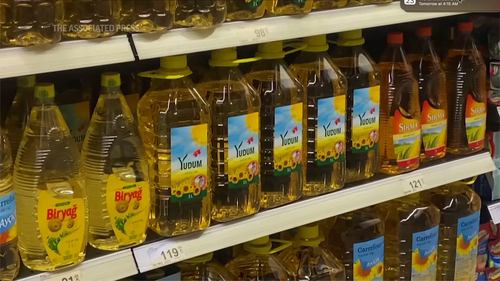Vaccine damage is now indisputable, say top scientists
by Neville Hodgkinson, TCW Defending Freedom,

USE of the gene-based Covid vaccines should be halted pending a detailed investigation of where the jab’s products travel in the body and for how long they last, a multinational team of scientists has declared in a report out this month.
The appeal comes from a group of ten scientists, including the top American cardiologist Dr Peter McCullough, who have reviewed evidence of the mechanisms through which they believe millions may have been harmed.
Their highly referenced paper has received minimal attention. The language is technical, but it implies a strong possibility of long-lasting damage from the jabs, and caution over such claims is understandable. Nevertheless the paper makes much sense in the light of warnings from many other scientists, and may be one of the most important to date.
Pfizer, Moderna, Oxford AstraZeneca and Janssen injections all transmit code instructing our body cells to manufacture the toxic spike protein of SARS-CoV-2, the microbe that causes Covid. The hope was that our immune system would respond to the jab by forming life-saving protection against the actual virus. But this was ‘the drug development miscalculation of all time’, McCullough says in a blog drawing attention to the review findings.
There is now solid evidence, the authors say, of an unintended effect from the vaccines on many different body tissues, including the heart and brain. The immune system sees spike-producing cells as foreign, and starts to attack them. Inflammation caused by this autoimmune process is the likely mechanism behind heart problems linked to the jab, seen especially among young people. ... Continue reading >>>
MORE posts on COVID vaccine harm
Cooking Oil Shortage Looms As Biofuel Demand Surges Due To 'Climate Solution'
from Zero Hedge, Mar 23, 2023A key ingredient commonly found in kitchens could face a shortage in the coming months as global biofuel consumption surges due to climate change initiatives.
As reported by Bloomberg, Western nations are increasingly adopting plant-based energy sources, such as soybean or canola oils, or even animal fats, in a move to reduce carbon emissions by transitioning away from fossil fuels. This shift has presented a profitable opportunity for vegetable and palm oil producers to redirect some cooking oil supplies toward the transportation sector rather than their traditional use in food production.

Hot demand for biofuels combined with the war in Ukraine disrupting ag flows and extreme weather in Argentina curbing vegetable oil supplies and other top producers reeling from declining production could push vegetable oil production into a deficit in the second half of the year, according to Thomas Mielke, executive director of Hamburg-based Oil World.
Mielke pointed out biofuels account for a large share of the vegetable oil market but only a fraction of energy demand. He's alarmed that biofuel targets pushed by governments might spark a cooking oil shortage.
Soaring demand for biodiesel, renewable diesel, and biojet fuel has primarily been concentrated in the US, Europe, Brazil, and Indonesia.
However, the global palm oil market could struggle to meet demand. Their production levels stagnate, with Indonesia and Malaysia responsible for 85% of global supply.
"In periods of supply shortages, the necessary rationing of demand must not take place only on the shoulders of the food consumers.
"This is a lesson we have to learn from last year," Mielke said.
Global decarbonization efforts might result in unintended consequences for consumers, who could soon face the prospect of rising cooking oil prices or potential shortages.

No comments:
Post a Comment